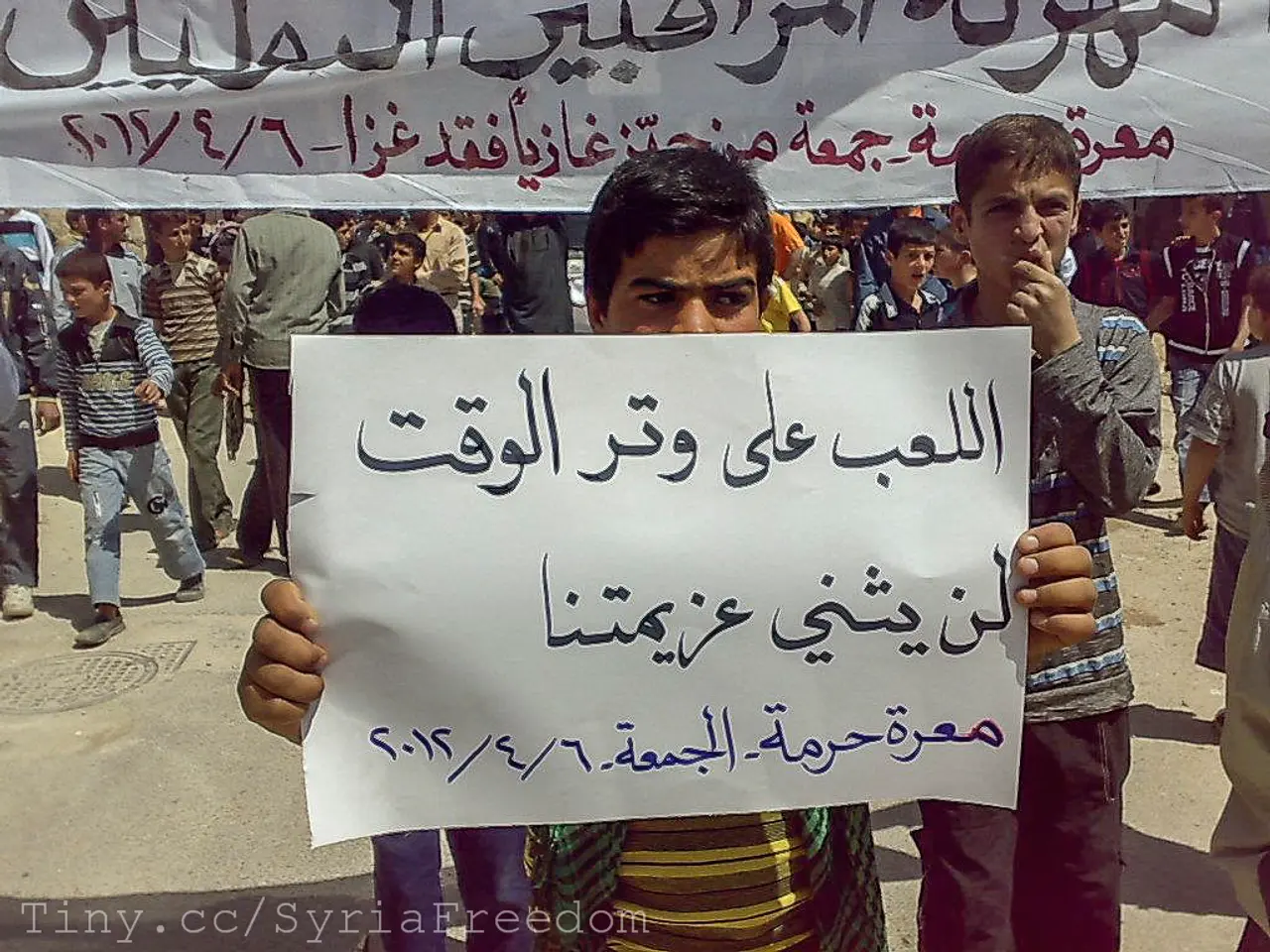"Minister Responds Cavalierly to Potential Tariffs from U.S. Due to Russian Oil"
India has embarked on a strategic mission to diversify its oil import sources, reducing its dependence on Russian oil and mitigating risks associated with potential US sanctions on Russian imports. This diversification strategy involves expanding crude oil imports from various countries, including the United States, Brazil, Guyana, Canada, and African producers such as Nigeria and Angola, while continuing to work with traditional Middle Eastern suppliers.
The shift in India's oil import portfolio has resulted in a significant decrease in its reliance on Middle Eastern oil, with the country now importing around 400,000 barrels per day (bpd) from the US and 250,000 bpd from Brazil. This diversification effort is part of a broader strategy to ensure supply stability and avoid geopolitical risks related to Russia and the Middle East.
The US oil imports to India have seen a substantial increase in the first half of 2025, rising nearly 51% to approximately 271,000 bpd, reflecting India's rapid growth in seeking alternatives to Russian oil.
Beyond volume diversification, India has also expanded its Strategic Petroleum Reserves (SPR) to 13.32 million metric tons, covering approximately 22 days of consumption. This move strengthens energy security and provides a buffer against supply disruptions.
Indian officials affirm that the country has expanded its supply network from 27 to 40 countries, underscoring a clear strategic pivot to multiple sources to safeguard against market shocks or sanctions repercussions.
The diversification of India's oil sources has played a stabilizing role in global oil prices. Officials argue that without Russian oil in the market, prices could have surged to around $130 per barrel. India's balanced approach in maintaining some Russian oil imports while increasing other supplies is helping to keep relative price stability globally.
By opening new sources and partnerships—including unconventional suppliers like Guyana and Brazil and reinforcing ties with the US—India is contributing to a more resilient and geographically diversified global oil market. This reduces the concentration risk and potential supply shocks, leading to a more flexible global oil market with reduced pressure on any single region or producer, thereby enhancing energy security both for India and the world.
It is worth noting that India continues to maintain its stance of not buying crude oil from a country under sanctions. This commitment to adhering to international norms underscores India's role as a responsible global energy player.
[1] The Economic Times, "India's oil imports from Russia drop to 3.5% in April, US becomes top supplier," May 1, 2025. [2] Reuters, "India's oil imports from Russia plummet as US becomes top supplier," May 3, 2025. [3] Bloomberg, "India's US oil imports surge as it seeks alternatives to Russian crude," June 15, 2025. [4] Financial Express, "India's oil diversification strategy stabilizes global prices, says Petroleum Minister," July 10, 2025.
- India's growing oil imports from countries like the United States, Brazil, Guyana, Canada, Nigeria, and Angola, as part of its diversification strategy, are a clear indication of its policy and legislation aimed at reducing dependence on Russian oil and mitigating potential US sanctions.
- The rise in crime and justice issues, such as the increasing scrutiny on sports betting, have become a concern in the sports sector, alongside India's expansion of sports activities with countries like Guyana and Brazil.
- General news outlets have reported on the government's commitment to adhering to international norms by not buying crude oil from countries under sanctions, further emphasizing India's role in politics and its commitment to be a responsible global energy player.
- The policy and legislation regarding sports, including sports betting, are expected to be the focus of future debates in the Indian parliament, as sports become a more integral part of the country's imports and general news discourse.







